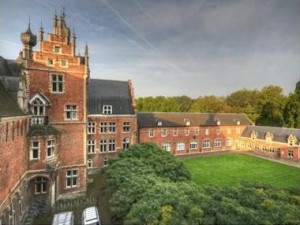 The Raymond Lemaire International Centre for Conservation (RLICC), a partner of the Cultural Heritage Counts for Europe project, is organising a Thematic Week “Heritage Counts” from 3-6 February 2015 in Leuven, Belgium.
The Raymond Lemaire International Centre for Conservation (RLICC), a partner of the Cultural Heritage Counts for Europe project, is organising a Thematic Week “Heritage Counts” from 3-6 February 2015 in Leuven, Belgium.
The idea of immovable heritage as a “capital of irreplaceable cultural, social and economic value” was already present in the European Charter of the Architectural Heritage, adopted by the Council of Europe in 1975. Today, the discourse is receiving increasingly more attention on the research agenda. Some argue that, although heritage is always valued highly, the current interest in the impact of heritage is caused by the democratization of heritage and the increased importance of heritage in today’s society. Others argue that a universal scarcity of funds for heritage management and conservation is becoming increasingly pertinent.
The 2015 Thematic Week of the Raymond Lemaire International Centre for Conservation, deals with the economic, social, environmental and cultural impact of immovable heritage. The aim is to provide an international overview of discourse, strategies and case studies. Theoretical reflections and best practices will be dealt with according to thematic sessions in order to highlight potentialities, gained advantages and difficulties encountered in the different steps of measuring the impact of immovable heritage. In order to gather and present this insight, RLICC invites academics, researchers and heritage stakeholders to respond to the conference’s “Heritage Counts” Call for Papers (deadline 1 December 2014).
For more information on the Thematic Week and to register, see: http://sprecomah.eu/rlicc/.
This edition of the Thematic Week grew out of the valorisation actions implemented within the Cultural Heritage Counts for Europe project, funded by the EU Culture Programme (2007-2013). The opening day of the Thematic Week will be co-organised by the lead partner of this project, EUROPA NOSTRA, and will bring together European policymakers and international researchers involved in cultural heritage.
